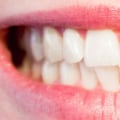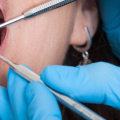Cheese is one of the best foods for healthy teeth for several reasons. First of all, it's low in sugar and high in calcium. It contains casein, which is a protein that is particularly useful for strengthening tooth enamel. Cheese is high in calcium, which is important for maintaining bone density.
Cheese is also high in phosphate, which helps balance pH levels in the mouth, which helps preserve tooth enamel. Another big reason cheese is a friend of our teeth is that chewing it increases saliva production, which helps eliminate bacteria from the mouth. Calcium in food counteracts mouth acids that cause tooth decay. It also helps keep bones and teeth strong.
Make an Appointment 410-383-8300 Total Health Care participates in the federal 340B (a) (pharmacy) program under the Public Health Service Act. Use fluoride toothpaste to protect teeth from cavities. If you have a higher risk of tooth decay (for example, if you have a dry mouth due to a condition you have or the medicines you take), you may need more fluoride. Your dentist or dental hygienist may give you fluoride treatment during an office visit or ask you to use fluoride gel or mouthwash at home.
Sugar-free black and green teas provide plaque-fighting ingredients. Lean proteins such as meat, fish, poultry, and tofu have phosphorus and protein to help keep teeth healthy. Almonds are great for teeth because they are a good source of calcium and protein and are low in sugar. Adding these foods to your diet can make a difference to your oral health.
You can also focus on healthy habits, such as limiting snacks and limiting sugar in your diet. Making sure to include vegetables, low-sugar or sugar-free dairy products, fruits, lean protein, and plenty of water in your diet is a great way to prevent tooth decay and promote oral health. Celery helps clean teeth because the texture can scrape off leftover food particles and bacteria from the teeth. Frequent consumption of these foods increases the amount of time you expose your teeth to the harmful effects of sugar, while decreasing saliva's ability to neutralize acids that damage teeth.
This can help eliminate some of the negative effects of acidic and sticky foods and beverages between brushes. In addition, the body produces more saliva to help digest larger meals, which eliminates more food and helps neutralize harmful acids before they can attack the teeth. In fact, the way you brush is just as important, doing a bad job of brushing your teeth is almost as bad as not brushing at all. High-protein foods, such as eggs, fish, meat, and poultry, can also help protect tooth enamel and improve bone density.
Collagen in dentin in teeth depends on vitamin C to maintain its strength and structure through synthesis. These foods help clean teeth and massage gums, and generate more saliva to remove leftover food particles left after a meal. Eating apples or other hard fibrous fruits can help clean teeth and increase salivation, which can neutralize citric and malic acids left in the mouth. Chewing sugarless gum or sucking on sugar-free hard candy can also help keep saliva flowing in the mouth.
Protein, which helps repair tissue and form bone, is an important component of bone mineral density, or BMD. Doing so is especially helpful if you have a history of dental problems, such as gingivitis or frequent tooth decay. The American Dental Association (ADA) calls on natural fluoride to fight tooth decay because it strengthens enamel and helps repair early stages of tooth decay. .



